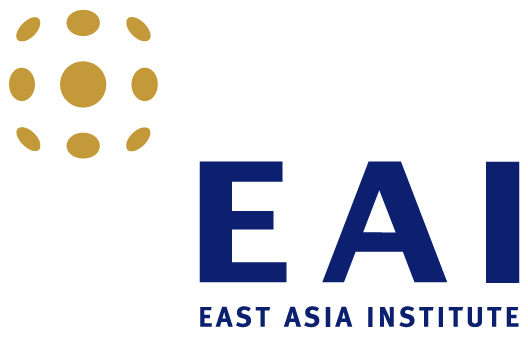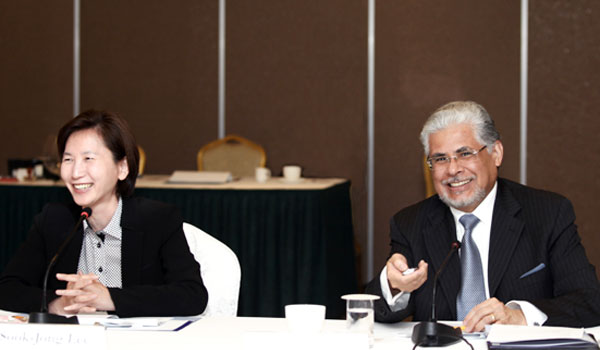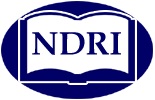NDRI Think Tank Spotlight: The East Asia Institute (South Korea)
NDRI News
 Founded in 2002, the East Asia Institute (EAI) is an independent think tank in Korea that strives to transform East Asia into a society of nations based on liberal democracy, market economy, open society, and peace. EAI works to propagate liberal values and ideas including diversity, tolerance, accountability, and transparency through research, education, and international exchange.
Founded in 2002, the East Asia Institute (EAI) is an independent think tank in Korea that strives to transform East Asia into a society of nations based on liberal democracy, market economy, open society, and peace. EAI works to propagate liberal values and ideas including diversity, tolerance, accountability, and transparency through research, education, and international exchange.
EAI was established to pursue and develop innovative and fresh ideas. By attracting and cooperating with leading scholars and experts from the world, EAI functions as a knowledge network generating creative policy ideas. EAI endeavors to see that these ideas become a reality to prepare a bright world for future generations. EAI is rooted in the belief that knowledge and good ideas can change the world.
Q&A
We asked the East Asia Institute about the challenges to democracy and to operating a think tank in South Korea, as well how their current research initiatives seek to address these issues.
Question: What are the biggest threats to democracy in South Korea?
EAI: There is little doubt that the absolute majority of South Koreans have come to embrace democracy as “the only game in town.” However, democracy in South Korea still faces some challenges. One of the most crucial challenges in Korean society is that social polarization, caused by economic inequality, threatens social stability as the cornerstone of democracy. It creates “contentious” politics in Korea’s democracy, which are fueled by ideology-driven competition and—unlike many representative democracies—a lack of mediation through political parties.
Another challenge is the cynicism of the Korean population about public institutions, particularly about the core state institutions, which is demonstrated by declining political trust in public institutions. However, despite some lingering questions about corporate governance, social trust toward leading conglomerates has steadily increased.
Instability caused by North Korea’s military and rhetorical provocations is another challenge to democracy in South Korea since the threat emanating from North Korea often draws attention away from most significant domestic issues of democratic governance. The recent rise of excessive nationalism, exacerbated by territorial disputes and historical issues with neighboring countries, also raises concerns.
In the face of an internally divided society and external security challenges, South Korea’s political institutions remain shallow and immature. They are unable to set a meaningful public agenda and resolve social conflicts. The frustrated Korean public tends to use unconventional political participation channels such as street protests and cyber activism. This has led to the deterioration of rule of law and of representative bodies, such as Congress.

EAI invited Ambassador José Luis Bernal Rodríguez as a guest speaker for the Fifth Roundtable
Discussion for Middle Power Diplomacy on October 31, 2013.
Question: What are the biggest challenges to running a democracy think tank in South Korea?
EAI: As a small organization with a limited budget and a few personnel, EAI has gained a reputation for innovation and influence with fresh, bold, and practical ideas. Our products have enabled government decision-makers, as well as civic practitioners, to rethink and reformulate public policies.
Preserving intellectual autonomy from the government and partisan politics is, thus, critical for EAI as a nonprofit think tank to maintain credibility and influence in civil society. Due to ideological competition in civil society itself, however, a democracy think tank can be easily labeled and attacked by citizen ideologues. This, in turn, leads EAI to avoid becoming involved in contentious issues and, instead, expand research into foreign affairs.
While EAI’s network-based research strategy has been successful in overcoming its limited budget, it has also limited EAI’s influence. Since EAI is unable to host a large number of experts, it has utilized research networks of nonresident scholars, most of whom teach at leading universities in South Korea. Many experts affiliated with the EAI’s research networks advise the government as policy committee members or participate in media outlets. Therefore, it is difficult to discern whether they are representing EAI or other organizations. For the research think tank to grow further, EAI needs to develop research capacities consisting of its own resident experts. In order to achieve this, we cannot avoid the problem of funding issues. The biggest challenge for non-profit think tanks is to gather enough funding to retain highly-qualified staff and operate programs.
Read about EAI's innovative approaches to influencing public policy in South Korea from the Forum's report on Democracy Think Tanks in Action: Translating Research into Policy in Young and Emerging Democracies.
Question: What are EAI’s main research topics and what projects are you either currently working on or have recently finished?
EAI: Designing Better Governance: Good governance requires sophisticated institutional designs that effectively harness political power. To make Korean democracy more representative, accountable, responsive, and effective, EAI's studies of democracy and governance provide analyses of the president and the executive branch, legislative reform, presidential transitions, constitutional reform, decentralization, and economic development.
Analyzing Public Opinion: Without understanding what citizens really want, it is impossible to come up with policy ideas that can address their interests. EAI public opinion studies chart the hearts and minds of the population accurately and clarify policy issues effectively. Elections are ideal opportunities for revealing the policy preferences of the public, so EAI published the Changing Korean Voters series from 2007–2013 to showcase EAI's survey research on public opinion and elections. EAI's studies of public opinion also pay attention to more fundamental areas such as national identity, a topic which is usually regarded as empirically inaccessible.
Crafting Strategies for Peace: EAI's studies of peace and security seek to understand the changing security environment in East Asia. EAI has paid attention to issues with North Korea, devising ideas on how to best deal with North Korea in the future. Another main area of EAI studies of peace and security is the Korea-U.S. alliance, which has been the most immediate and important issue for South Korea’s security. EAI also extended its research to explore the changing environment in East Asia and has recently tackled the possibility of middle power diplomacy as a vision for South Korea’s foreign policy as a way to effectively respond to growing uncertainty from power transition-triggered conflicts between the U.S. and China.
See a list of EAI publications generated within these three areas of research.
About NDRI Spotlight
 NDRI Spotlight is a monthly feature which highlights the work of one of the 80+ member institutes in our global network of think tanks and research centers to show how these organizations are creatively innovating to address challenges to democracy and to impact policy reform in their own countries.
NDRI Spotlight is a monthly feature which highlights the work of one of the 80+ member institutes in our global network of think tanks and research centers to show how these organizations are creatively innovating to address challenges to democracy and to impact policy reform in their own countries.
To learn more about the publications, events, and other initiatives our members are generating, read Democracy Research News.